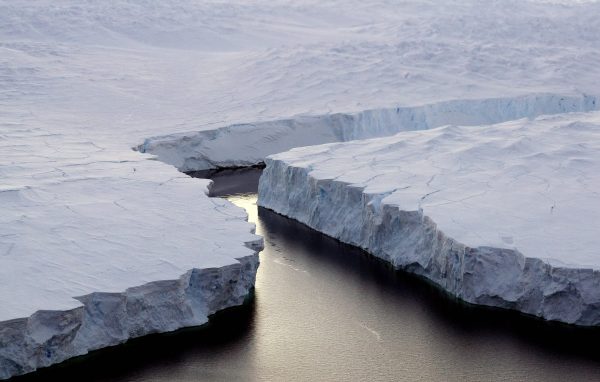Concerns have been raised about the environmental impacts of constructing and operating what will be one of the largest infrastructure projects ever undertaken on the continent, with an almost 20-year construction period.
Australia is one of seven claimant states with asserted, but not generally recognised, territory in Antarctica. Within the AAT, Australia’s scientific research program is conducted at three bases: Casey, Davis, and Mawson. Historically, resupply of those bases has been undertaken by ship. Since 2006–2007 Australia has operated a summer ice runway which has permitted an air link from Hobart adding flexibility and additional logistics capability to the Australian Antarctic program. Australia’s territorial claim, scientific research activities and engagement in Antarctic governance are undertaken within the framework of the 1959 Antarctic Treaty, which together with its associated instruments is known as the ‘Antarctic Treaty System’. The 1991 Madrid Protocol on Environmental Protection prohibits all mining activities and creates an environmental protection regime for the continent.
For the project to proceed, it must gain approval under both the Madrid Protocol and Australian law. This will be the first time either regulatory framework has been activated for the building of a paved runway in Antarctica.
The project is ‘likely to have more than a minor or transitory impact’ and will require a Comprehensive Environmental Evaluation (CEE) under the Madrid Protocol, based on practice for the construction of main stations and other hard airstrips. The Antarctic Treaty Secretariat has recorded 44 such evaluations since 1988.
Australia has not produced a single CEE to date, unlike adjacent claimants France (three), Norway (two), New Zealand (four). The United Kingdom has produced seven and the United States five evaluations. China and Russia — often characterised as problematic — have conducted three and two evaluations respectively.
To date, Australia has dealt with its unfolding air-link issues through a series of five Initial Environmental Evaluations (IEE), the last concerning the runway. At a technical and procedural level this is legitimate, but it has complicated the picture around Australian air operations. Australia’s IEE track record is no substitute for a complete consideration of the proposal in a comprehensive evaluation.
The process for considering Australia’s draft CEE when it is provided for international review is also more problematic than usual due to COVID-19. The pandemic has disrupted the Antarctic Treaty System, requiring the entire approval process to be conducted remotely. Other evaluations are also under consideration at present and, even at the best of times, only a small subset of states provide detailed consideration of draft CEEs.
This creates concerns about the level and rigour of international scrutiny that Australia’s proposal will receive. While not providing a veto, international scrutiny is likely the most powerful environmental control mechanism presently available under the Madrid Protocol.
The scale, time horizon and deep purposes of the Davis Aerodrome Project pose issues not only in terms of possible environmental impact but for Antarctic geopolitical relations, and the profile of future human development across East Antarctica. Some have suggested there is a strong ‘strategic imperative’ rationale. But is this really the case? Although, the mere fact of one party flagging something as strategic may ensure that the putative competitor must see it as strategic too. Can one win or prevail in such a game, particularly given the substantive asymmetries in play? What does it risk? Will the Chinese or Russians build their own aerodrome, or find some other means to demonstrate their strategic imperatives in East Antarctica? It is also completely at odds with what one might see as the great successes of the Antarctic Treaty System, built around cooperation rather than competition for 60 years.
One might have hoped that ‘arms races’ or their proxies could be avoided in Antarctica. A better approach would be to focus on the importance to Australia and other interested Antarctic parties of the Davis Aerodrome Project for logistics, search and rescue, and the support of science. Australia historically has been a very strong supporter of the Antarctic Treaty. The Davis Aerodrome Project could be promoted and developed as an Antarctic Treaty System-reinforcing way to approach major Antarctic infrastructure and allow Australia to take a lead in Antarctic leadership akin to that when it promoted the Madrid Protocol.
Alan D Hemmings is Adjunct Professor at Gateway Antarctica, The University of Canterbury.
Donald R Rothwell is Professor at the College of Law, The Australian National University.

